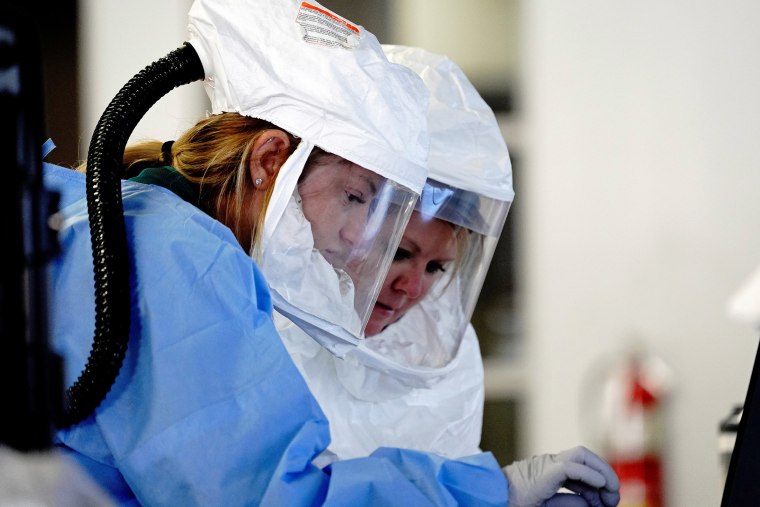In recent weeks, Donald Trump repeatedly told his followers that the coronavirus pandemic would simply cease to be an issue the moment Election Day came and went. The president was apparently convinced that interest in the crisis was not only insincere, it was also concocted by conspiring news organizations who were plotting behind the scenes to make him look bad.
Trump's paranoia notwithstanding, Election Day is over. The pandemic is not.
The number of new coronavirus cases recorded in a single day in the United States topped 100,000 for the first time Wednesday, setting a record in the months-long pandemic, NBC News data show. According to the data, there were 104,429 new cases, breaking the single-day record of 98,583 new cases set last week.
It's not just cases: NBC News' report added that hospitalization rates are soaring across much of the country, with Missouri, Oklahoma, Indiana, Nebraska, North Dakota, and New Mexico all reporting record hospitalization numbers. The same report added that hospital officials in Iowa and Missouri have warned that their capacity to treat patients "could soon be overwhelmed."
What's more, as was the case during earlier infection peaks, fatality numbers are also increasing, and currently stand at over 235,000 in the United States.
There's still some question, however, about the extent to which the White House cares. Dr. Scott Atlas, who appears to now be helping lead the administration's response, published a tweet last night with an accompanying image: it was a chart that showed soaring coronavirus case totals, but a comparatively much smaller number of deaths caused by COVID-19.
The radiologist, who has no background in infectious diseases, said he was "anticipating hate" in response to the tweet, but the chart reflects "fact, not opinion."
From time to time, the political world confronts this kind of argument, and it's never wise.
I remember the rhetorical trick taking hold in the Bush/Cheney era as part of the Republican defense of the war in Iraq. As the country descended into chaos, the Bush administration tried to focus on the positives, effectively arguing, "What about the areas in Iraq that aren't on fire?"
A few years later, during Herman Cain's presidential campaign, the Republican was confronted with allegations of sexual harassment. Cain responded at the time by effectively asking, "What about the women I knew who haven't accused me of misconduct?"
In 2017, CNN's Jake Tapper reminded Kellyanne Conway that Donald Trump says quite a few things that are demonstrably untrue. As regular readers may recall, instead of defending those claims, Conway responded by insisting there are "many things" that the president says "that are true."
And now we find ourselves at a similar point. The one person Trump seems to listen to on matters related to the pandemic has been reduced to conceding that more than 9.5 million Americans have contracted the virus, and it's claimed the lives of more than 235,000 of us, but Atlas would prefer that we focus on the people who've been infected but who haven't died.
